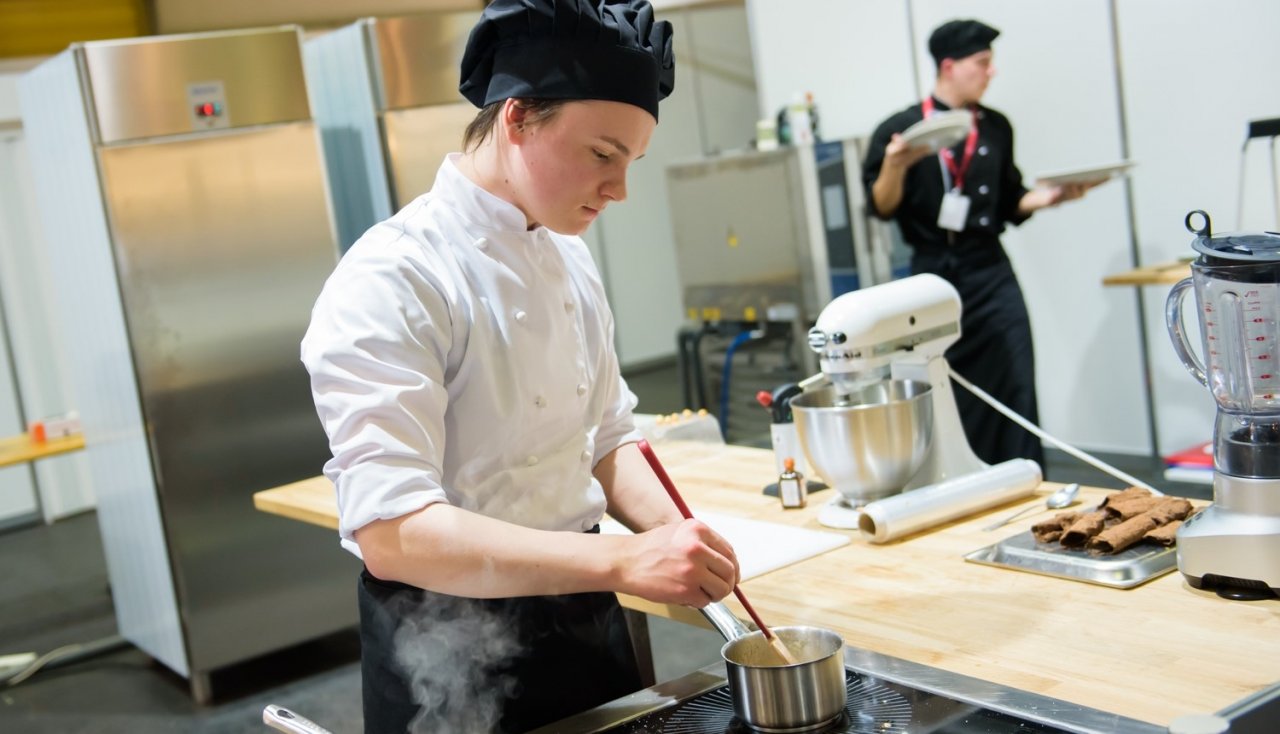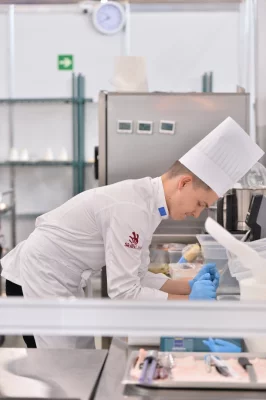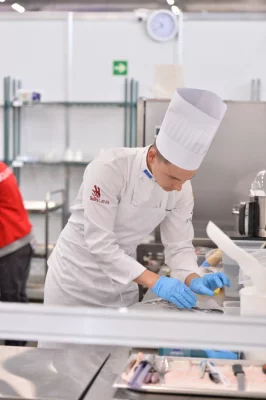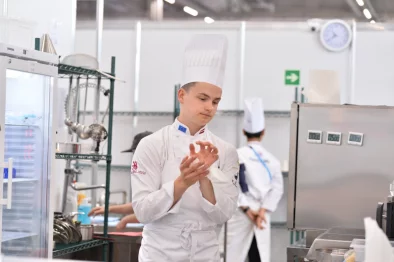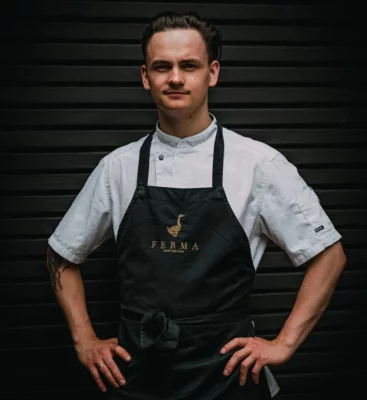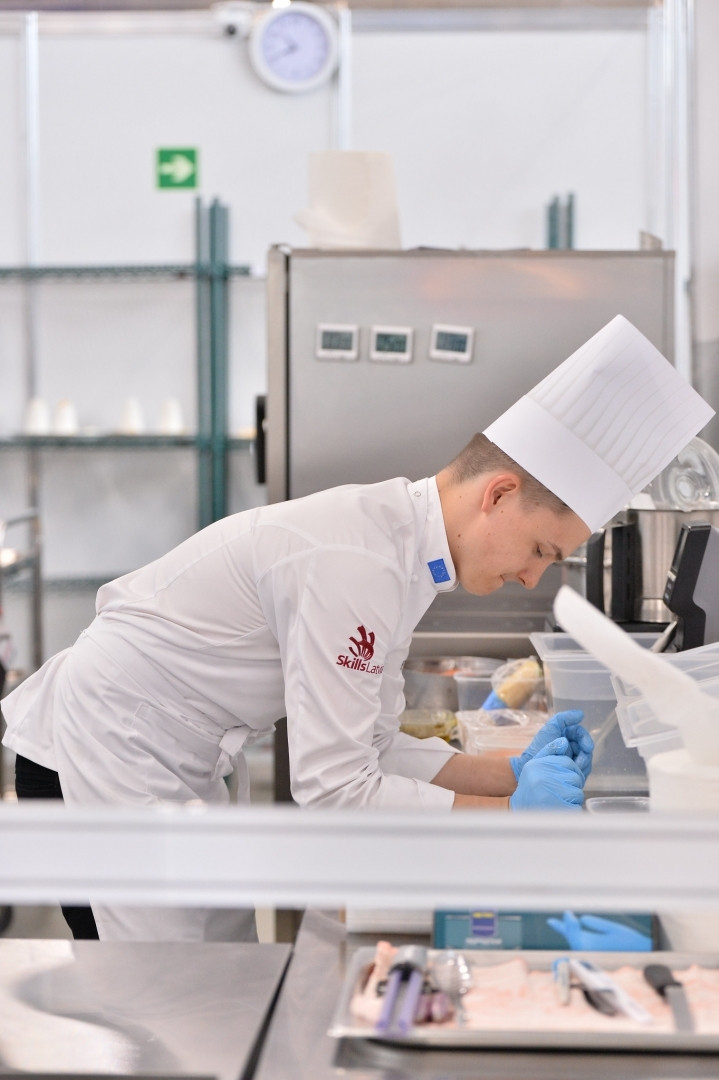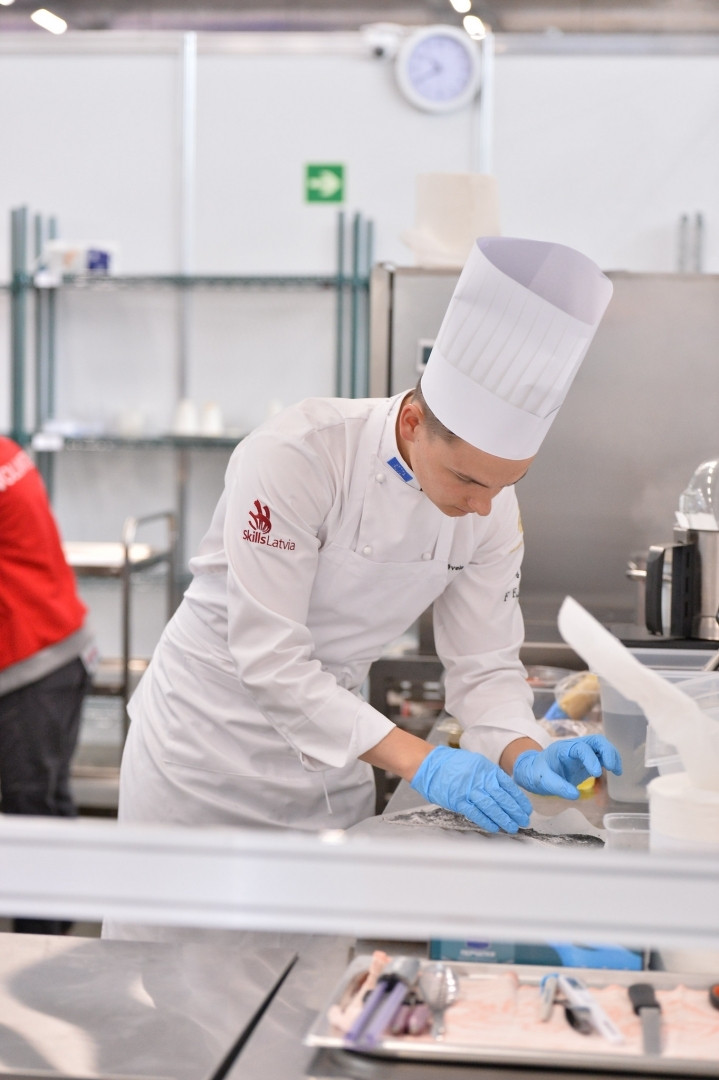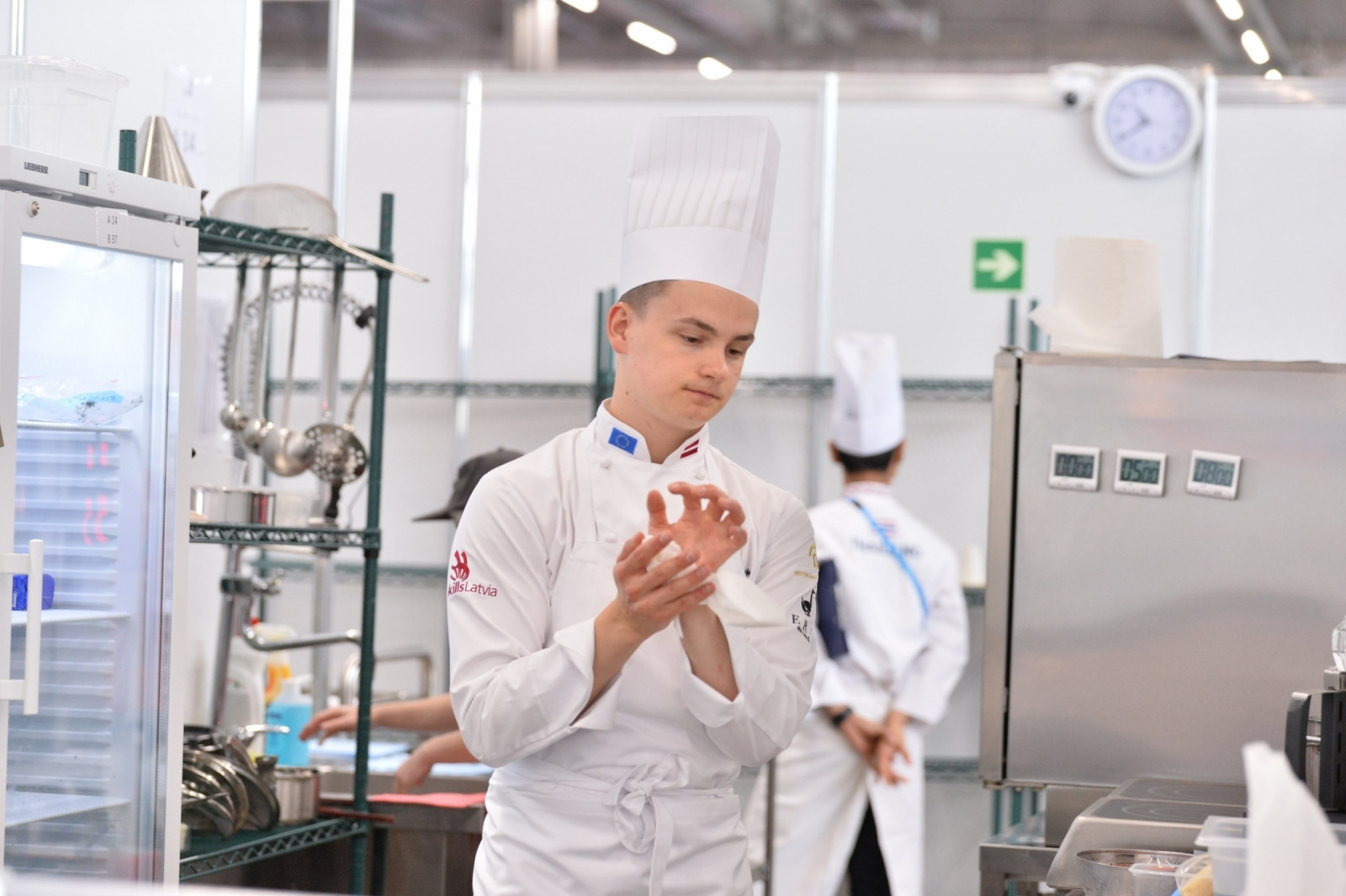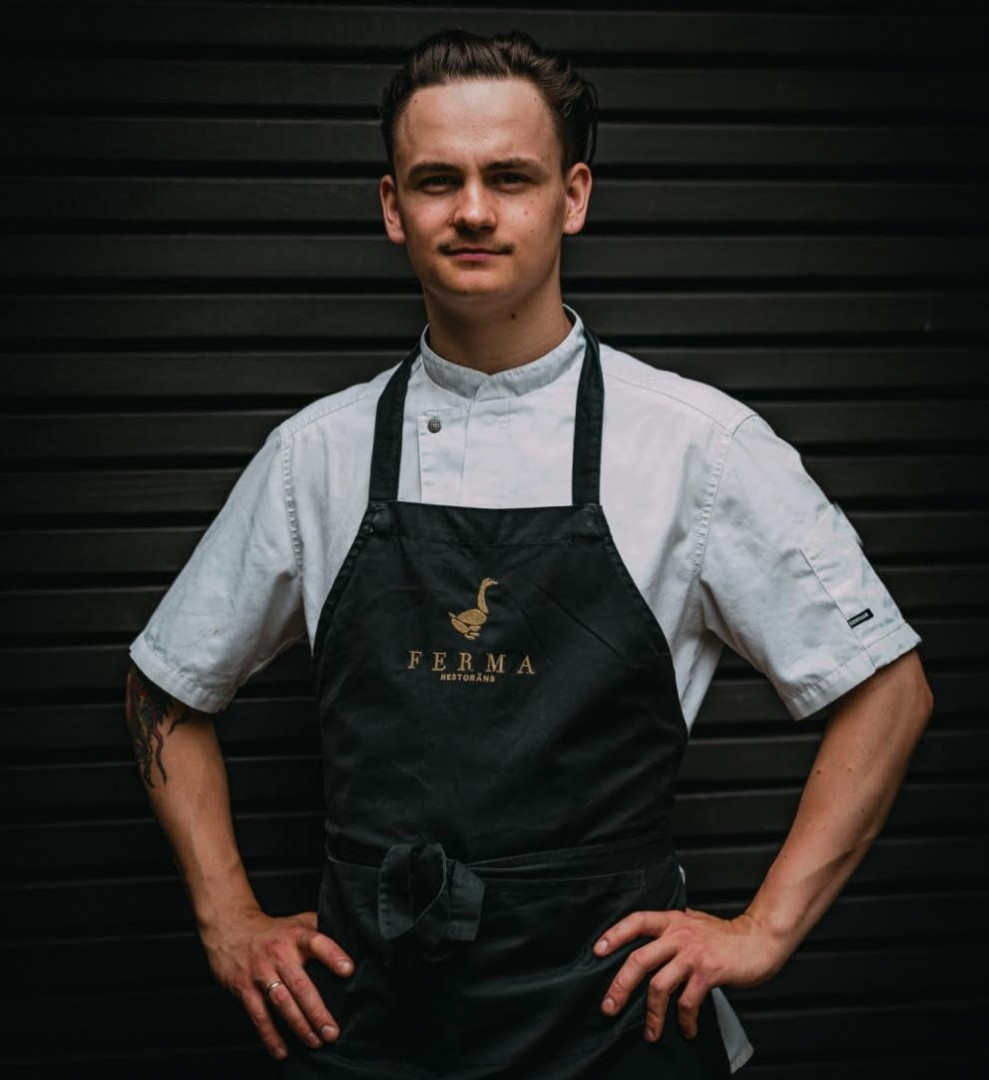As Head Chef at FERMA, one of Latvia’s most prestigious restaurants, Nils Ģēvele has some wise advice for young people looking to emulate his success.
"If you want to be a successful chef, one of the main things you need to do is make sure you hold your knife in your hands more often than your phone," says Nils. "With the right focus and training, you'll soon develop the skills and motivation to get better in cooking, plating, planning, and evolving as a chef.
Even as a young child, Nils had his eyes set on the prize of becoming a top chef.
"As a kid, I was always hooked on cooking shows," says Nils. "The big chefs on TV at that time inspired me to seek a career in the restaurant industry. Even back then, I knew it would be a profession to indulge my creativity and offer opportunities to grow and learn."
Nils' career started at a restaurant called 36.Line in the resort town of Jurmala, just west of the Latvian capital, Riga. While learning hands-on how a professional kitchen works, he also enrolled in the Restaurant Service School at Mālpils Professional High School. He then started entering skills competitions to fine-tune his abilities in the kitchen.
Skills always win in a competitive labour market
One of the first competitions Nils entered was SkillsLatvia 2017, organised by The State Education Development Agency (VIAA). Nils finished the competition in third place and, following this success, quickly landed a job at FERMA.
"Skills competitions were a big challenge for my professional abilities," says Nils. "Success showed me where I was at that point and what I needed to improve to grow in the world of gastronomy."
Inta Asare, Educational Guidance and International Affairs Department director at the VIAA explained that competitions like the annual SkillsLatvia event are an excellent opportunity for young people in Vocational Education and Training (VET) to develop their skills and showcase their abilities on a national and international stage.
"These competitions elevate students' self-esteem and showcase their enthusiasm and motivation to master their craft," says Inta. "This improves their employability and competitiveness upon joining the labour market."
Improving the image of vocational education
The competitions are also designed to improve the public's perception of Vocational Education and Training.
“By competing, students also contribute to the prestige of vocational education establishments,” says Inta. “This is important because there are still some negative stereotypes that suggest vocational education standards are lower than in secondary or high-school education.”
Inta explains that persuading young people to consider Vocational Education and Training alongside other opportunities like going to university is essential for the local economy. Like many other EU countries, Latvia faces a critical skills shortage that only vocational training can fill.
The Latvian skills shortage is compounded by a rapidly declining population. Ministry of Economics figures suggests that the Latvian population could shrink by upwards of 65,000 people by 2027. The most significant decline in this period is expected among people of working age (15-64), estimated to fall by 7%. With the population already below 1.9 million, this significant decline will make it increasingly difficult for employers to replace skilled workers leaving the workforce and will threaten future investment. On the other hand, this also means that workers with the right skills and experience suddenly become a lot more attractive in the eyes of employers.
"Business sectors, such as hospitality, construction, manufacturing, IT, trade and sales, and logistics, all have labour shortages and problems finding a skilled workforce, especially among the younger workers," says Inta. "VET pushes people to advance in practice and sharpen their skills rather than just focus on the theory as happens in secondary education."
This doesn't mean that students should exclusively choose Vocational Education and Training over a traditional secondary education or university. In fact, VET can provide a springboard, adding in-demand practical skills to a highly valued higher education qualification.
"There is no contradiction between these two levels of education," says Elina. "Often, the most successful graduates of vocational education institutions are offered budget places for studies in institutions of higher education based on mutual cooperation agreements as much as graduates of high-school."
‘My biggest success’
Nils hasn't looked back since his initial success in the LatviaSkills 2017 competition. After that, he participated in EuroSkills 2018 and won a medal of excellence in the WorldSkills 2019 competitions. However, winning the Latvian Chef of the Year 2022 competition was his crowning achievement.
"Chef of the Year was my biggest success in the catering industry," says Nils. "It built my confidence and increased my ambition to raise my profile in future competitions. It also made me pretty well known as a young chef."
Outside of the competitive arena, Nils is climbing the career ladder and living his professional dream thanks to Vocational Education and Training.
"As a head chef, I have full responsibility over the kitchen, kitchen staff, and menu," says Nils. "FERMA is set in a wonderful location in the 'quiet centre' of Riga, opposite the Viesturdārzs park. The restaurant has a beautiful interior and a unique atmosphere. But the food is the reason that people keep coming back."
